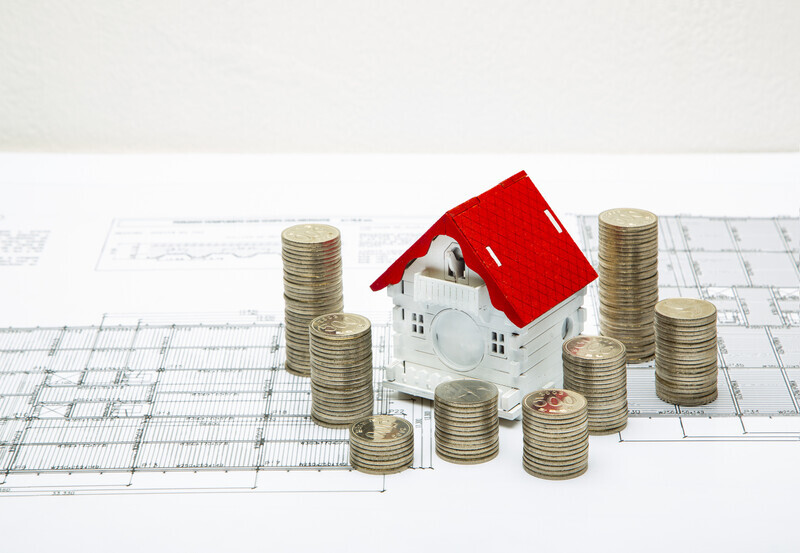hankyoreh
Links to other country sites 다른 나라 사이트 링크
Household loans by adults under 40 increase by 24% over past year

Household loans by South Koreans in the 20s and 30s increased sharply over the past year, statistics show.
The reports come when many call for looser restrictions on real estate loans, citing the outpouring of popular frustration with real estate that the ruling Democratic Party ran up against in the April 7 by-elections.
According to figures shared by the Bank of Korea (BOK) with the office of Justice Party lawmaker Jang Hye-young on Monday, the average household loan-to-income ratio (LTI) stood at 229.1% as of late December 2020, up 19.8 percentage points from the 209.3% recorded early in President Moon Jae-in’s term in late June 2017.
Out of that increase, 11.6 percentage points came within the year 2020.
An especially sharp increase was observed over the last year in household loans among South Koreans in their 20s and 30s who took part in “panic buying” of real estate in 2020.
During the year 2020, the LTI for people aged 50-59 rose by just six percentage points from 207.6% to 213.6%. But among younger people aged under 30 and 30-39, the increase was around 24 percentage points.
At 147.8%, the LTI for those aged under 30 was up by 23.8 percentage points from the year before. For people aged 30-39, it climbed by 23.9% points to 262.2%, giving this segment the highest ratio among all age groups.
The 30-39 segment moved ahead of the 60-and-over segment (248.4%), which experienced a steep drop in post-retirement income.
Also, because many of the residential mortgage loans at South Korean banks have variable interest rates, a future rise in interest rates raises a serious risk of household insolvency. As of late February 2021, the proportion subject to variable interest rates among the balance of 595.6 trillion won (US$532.02 billion) in residential mortgage loans from commercial banks amounted to 404.1 trillion won (US$360.96 billion), or 68.1%.
With the steep rise in housing prices leaving younger South Koreans feeling increasingly short-changed, politicians have been making gestures toward relaxing restrictions on real estate loans for younger people.
But according to some observers, that approach amounts to little more than treating the symptoms. In other words, while it may temporarily allay the fears that have escalated among younger South Koreans as housing prices skyrocket, it also stands to leave behind the low-income young people for whom even a loan would be too much to shoulder.
Policy measures to relax loan restrictions could also serve to exacerbate an already jittery real estate market.
Jang said, “Skyrocketing asset prices and employment fears have left young people shouldering an excessively high debt burden compared with what they are earning.”
“Right now, we urgently need policies to stabilize asset prices themselves, rather than a relaxation of loan restrictions that leads to a greater debt burden,” she said.
By Lee Ji-hye, staff reporter
Please direct comments or questions to [english@hani.co.kr]

Editorial・opinion
![[Guest essay] Maybe Korea’s rapid population decline is an opportunity, not a crisis [Guest essay] Maybe Korea’s rapid population decline is an opportunity, not a crisis](https://flexible.img.hani.co.kr/flexible/normal/500/300/imgdb/original/2024/0430/9417144634983596.jpg) [Guest essay] Maybe Korea’s rapid population decline is an opportunity, not a crisis
[Guest essay] Maybe Korea’s rapid population decline is an opportunity, not a crisis![[Column] Can Yoon steer diplomacy with Russia, China back on track? [Column] Can Yoon steer diplomacy with Russia, China back on track?](https://flexible.img.hani.co.kr/flexible/normal/500/300/imgdb/original/2024/0430/1617144616798244.jpg) [Column] Can Yoon steer diplomacy with Russia, China back on track?
[Column] Can Yoon steer diplomacy with Russia, China back on track?- [Column] Season 2 of special prosecutor probe may be coming to Korea soon
- [Column] Park Geun-hye déjà vu in Yoon Suk-yeol
- [Editorial] New weight of N. Korea’s nuclear threats makes dialogue all the more urgent
- [Guest essay] The real reason Korea’s new right wants to dub Rhee a founding father
- [Column] ‘Choson’: Is it time we start referring to N. Korea in its own terms?
- [Editorial] Japan’s rewriting of history with Korea has gone too far
- [Column] The president’s questionable capacity for dialogue
- [Column] Are chaebol firms just pizza pies for families to divvy up as they please?
Most viewed articles
- 1‘We must say no’: Seoul defense chief on Korean, USFK involvement in hypothetical Taiwan crisis
- 2After election rout, Yoon’s left with 3 choices for dealing with the opposition
- 3Why Kim Jong-un is scrapping the term ‘Day of the Sun’ and toning down fanfare for predecessors
- 4First meeting between Yoon, Lee in 2 years ends without compromise or agreement
- 5Two factors that’ll decide if Korea’s economy keeps on its upward trend
- 6Noting shared ‘values,’ Korea hints at passport-free travel with Japan
- 7Under conservative chief, Korea’s TRC brands teenage wartime massacre victims as traitors
- 8AI is catching up with humans at a ‘shocking’ rate
- 9Months and months of overdue wages are pushing migrant workers in Korea into debt
- 10[Guest essay] Maybe Korea’s rapid population decline is an opportunity, not a crisis